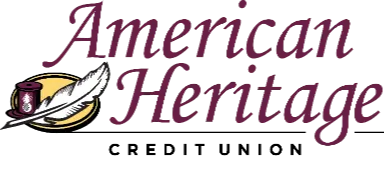Simple Ways to Improve Your Financial Literacy

Financial literacy is more important than ever. It’s key to making informed decisions about managing your money and meeting your long-term goals. Yet, according to a survey by the National Foundation for Credit Counseling, only 53% of Americans give themselves an A or B when considering their knowledge of personal finance. In that same survey, 80% feel they could benefit from additional financial advice and education, even with their existing knowledge.
The good news is that it’s never too late to improve your financial literacy. You don't have to wait to make a New Year's Resolution or to hit a certain age. Any time is the perfect time to review where you are financially and where you want to be.
The Language of Money
If you want to make smart decisions with your money, learning these key financial terms is a great place to start.
- Compound interest: This is the interest you earn on your savings and the interest you’ve already earned. It’s like a snowball effect that can significantly boost your savings over time.
- APY (annual percentage yield): This is the interest rate you earn on your savings account over a year, including the effects of compounding. A higher APY means more growth for your money.
- APR (annual percentage rate): This is the interest rate you pay on borrowed money, such as a loan or credit card. The APR includes fees and reflects the total cost of borrowing.
- Budget: A plan for how you’ll spend your money each month, ensuring you cover your expenses and work toward your financial goals.
- Credit score: This number represents your creditworthiness, which affects your ability to borrow money and the interest rates you’ll be offered. Credit scores range from 300 to 850.
- Emergency fund: Money to cover unexpected expenses, like car repairs or medical bills.
- Net worth: The total value of your assets (what you own) minus your liabilities (what you owe). A positive net worth means you have more assets than debts.
Your Financial Checkup
Whether you’re focused on short-term wins like building an emergency fund or long-term targets like retirement, understanding your finances can make all the difference. Review your credit report, analyze your spending habits, and assess your savings progress. A clear picture of your financial standing is the first step toward improvement.
Remember, financial literacy isn’t just for adults; it’s a valuable skill for everyone, including children. Teaching kids the basics of budgeting, saving, and responsible spending can equip them with essential skills that will benefit them for a lifetime. We offer a wealth of free resources to help families and educators make learning about money fun and engaging for kids of all ages.
Empower Your Financial Future
Here are some additional actions you can take to improve your financial health:
- Set SMART financial goals: Create goals that are Specific (clearly defined), Measurable (trackable progress), Achievable (realistic), Relevant (aligned with your values and needs), and Time-Bound (with a deadline). This framework can increase your chances of success by providing a clear road map and motivation to stay on track. For example, instead of a vague goal like “save more money,” a SMART goal would be “save $5,000 for a down payment on a car by December 31 of next year.”
- Take advantage of financial planning calculators: Our online financial calculators can help you estimate loan payments, project retirement savings, and explore the potential of compound interest. It’s a risk-free way to experiment with different financial scenarios.
- Start using a budgeting tool: Our organizational tools, like the monthly budget worksheet, make it easy to budget, categorize expenses, create savings goals, and much more. The monthly budgeting worksheet and other worksheets are available for print on our Activities page.
- Get your free FICO® Score: All American Heritage members with an Online Teller account can view their updated FICO® Score for FREE each month.
- Learn something new about personal finance: Explore our Learning Center and discover the best ways to master your financial future. We have hundreds of blogs for all age groups, webinars for live learning, videos covering specific topics in-depth, and more. The more you learn, the more confident you’ll become in managing your money.
- Download the Zogo app: Your financial well-being is at the heart of everything we do. That’s why we’ve partnered with Zogo, one of the most innovative financial literacy programs. Zogo makes learning about money fun and rewarding. When users correctly answer the questions that follow each module, they earn points in the form of pineapples. These pineapples can be exchanged for gift cards to popular retailers such as Starbucks, Target, Amazon, and more!
It’s a win-win—you gain knowledge and earn rewards! Join a Pineapple Party and earn up to 5,000 pineapples by answering daily trivia questions. You could also refer friends and family to earn up to 1,000 Pineapples.
|
Take the Next Step Today
No matter where you are on your financial journey, remember that American Heritage Credit Union is here to support you. Explore the Zogo app and take advantage of our financial calculators and budgeting tools. Together, we can build a brighter financial future. Feel free to contact American Heritage today if you need additional help with your finances.

